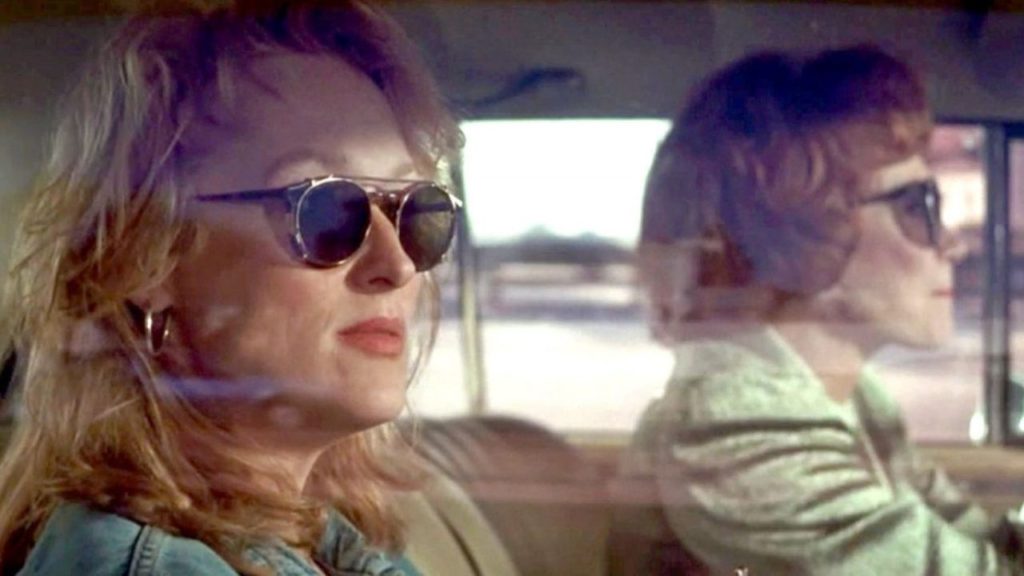I felt like it was only fitting that my last write-up as a Goggler intern be on the icon herself, Carrie Fisher. Not to be dramatic, but I absolutely hero-worship the woman. I know her lines from A New Hope by heart. I donned her signature space buns one Halloween. I’ve seen When Harry Met Sally more times than I can count. I’ve watched almost every single YouTube video that remotely mentions her name, including the one interview where she only speaks French for eight whole minutes. But when I think of Carrie Fisher, I think of Postcards from the Edge.
Now outside of her galactic adventures as everyone’s favourite space princess general, Fisher was a wickedly good writer. She penned novels and memoirs that were wildly popular, and punched up numerous film scripts into something far greater than they were. Her infamous novel, Postcards from the Edge, was adapted in 1990 and is loosely based on her bouts with addiction and growing up with celebrity parents. It is quintessentially the most Carrie Fisher a film could ever be, without her ever making an appearance.
Come for Carrie, Stay for Meryl

We meet Suzanne Vale (Meryl Streep), a vivacious actress who wakes up in rehab after one too many drug benders. As if it couldn’t get worse, she’s been advised to move back in with Doris (Shirley MacLaine), her also-famous actress mother, a woman whose shadow Suzanne had spent years trying to get out from under. They are chalk and cheese, unable to find common ground without stepping on each other’s shoes. Doris can’t help poking her nose into Suzanne’s affairs, offering unsolicited advice and outshining her daughter every chance she gets. And Suzanne can’t bottle up her mommy issues, jumping head-first into a bad relationship, and later, back into the arms of drugs.
It is hopeful yet hopeless, tranquil yet turbulent. It is precisely what the back and forth of every mother-daughter relationship (or rivalry) looks like. (Albeit without the Hollywood glitz and glamour.)
“Do You Always Talk in Bumper Stickers?“

Meryl Streep is a blast as Suzzane Vale. She’s flawed and downright reckless, but it never comes off as self-destructive. Her deadpan humour and self-deprecating one-liners are akin to that of Fisher’s, delivered with total conviction. And beneath it all, we can see Suzanne’s desperation to be validated and respected by a mother whom she never feels like she can measure up to. Shirley MacLaine equally shines as a reimagined Debbie Reynolds, unable to come to terms with her expiring sell by date in the industry. Her solution comes in the form of alcoholism and regularly competing with her daughter. Suzanne and Doris aren’t perfect, but they make for compelling leads whose insecurities overshadow their affection for one another. The writing is unapologetically honest in showing this, brimming with the kind of candor and wit that remains a staple in most of Fisher’s work.
Postcards from the Edge never really tries to resolve Suzanne’s life woes. It doesn’t show her fully kicking her drug addiction to the curb. Or working through her many, many issues with her mother. Or even successfully reviving her acting career. The plot isn’t singular, nor does it pretend to be. There’s no strong, empowering message highlighted in yellow. Or a deep academic analysis into drugs and dysfunctional relationships. It is simply a woman trying to clean up her mess while having no real desire to do so. It is Carrie Fisher projecting her trauma onto fictional characters and disguising it with great writing and an even greater performances. And you know what? It absolutely works.
Anyone can turn the ugly parts of their lives into a good story for the rest of the world. But no one can do it quite like Carrie Fisher.









Follow Us